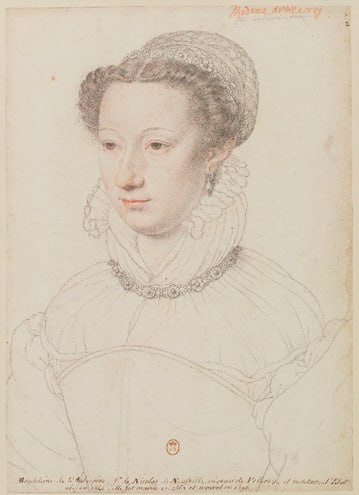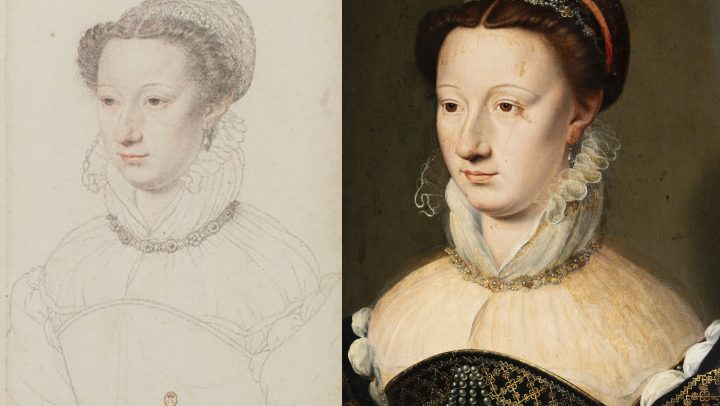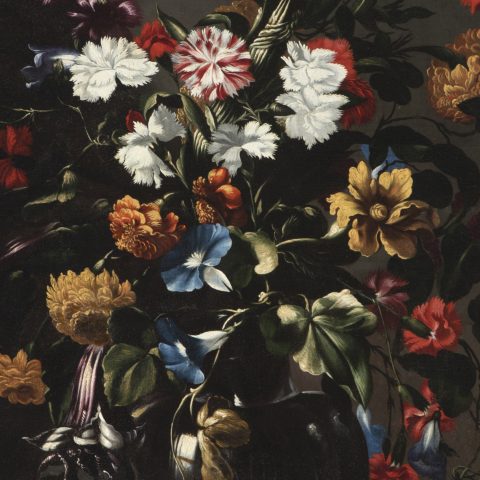In the tumultuous setting of the 16th century, one female figure stands out as a beacon of stability and grace amidst religious strife, constant wars and shifting alliances between monarchs. This immutable woman is Queen Catherine de Medici, a dominant force who occupied the throne of France for nearly four decades. However, among the shadows of the powerful queen, another equally fascinating figure emerges: Madeleine l’Auberpine, known as Madame de Villeroy, protagonist of the portrait attributed to the renowned François Clouet, court painter and favorite portraitist of the most exclusive aristocratic circles of his time that Setdart is privileged to present at the Old Masters auction on December 13.

Villeroy, raised in the distinguished family of the Barons Châteauneuf and married to Nicolas Neufville, secretary of state, was at the epicenter of the most momentous decisions of the court. Although Catherine de Medici’s influence tended to overshadow those around her, Villeroy did not fade into obscurity. Rather, her active participation in court life and her privileged position make her an important figure in Renaissance France.
Madame de Villeroy’s literary salon was a meeting point for artists, poets, writers and philosophers, making it one of the most appreciated of the time. Although we do not know the depth of his influence on political decisions, his environment and the people who were part of his life defined Renaissance France. Her father and husband, both secretaries of state, are evidence of Villeroy’s direct connection to political power.

Beyond her role as a witness to events, Madeleine l’Auberpine was a cultivated and talented woman, embodying the spirit of the Renaissance. His humanistic thinking is reflected in his novels and poems, characterized by a refined and descriptive style. She stood as an active advocate of humanist and aesthetic values, contributing significantly to the shaping of French society at the time.
The legacy of Madeleine l’Auberpine, Madame de Villeroy, endures in the collective memory as a multifaceted woman whose impact spans from literary salons to politics, cementing her position as one of the most important women of her time and a true “homo universalis” of the Renaissance.”







